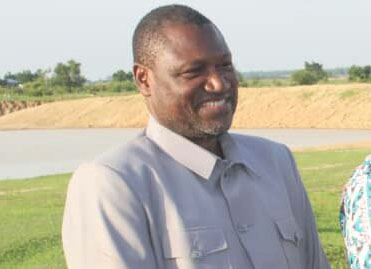Dr. Abdul-Majeed Haroun
The Chief Executive Officer of the Northern Development Authority, Dr. Abdul-Majeed Haroun says the Authority is creating a type of farming system that will be attractive to young people and hopes that many people will take advantage of it.
According to him, there is so much to be made from farming specific produce to satisfy a specific market need, which means there will be ready market for the produce from the farms of these young people.
Dr. Haroun disclosed that a total of $620 million can be made in one year in the Northern Ghana from the cultivation of Alfalfa grass alone on commercial scale.
“Many parts of Northern Ghana are grass lands, meaning we can focus on the cultivation of grass on large scale. We can focus on farming Alfalfa grass and packaging it for export to the Gulf countries to feed their animals.
So much money can be made from this alone we have not mentioned soya bean and rice. Egypt has banned the cultivation of rice in their country because the Nile River is not adequate for them; this is an opportunity for Ghanaian rice farmers to fill this space to make money.” Dr. Haroun suggested.
The C.E.O of the Northern Development Authority was speaking at Maigogo in the Tempane District in the Upper East Region when he accompanied the Minister for Special Development Initiative, Mavis Hawa Koomson to inspect work on some small dams under the One Village-One Dam initiative.
Dr. Haroun believes that, if the small dams are completed and put into good use, especially for large scale dry season farming there will be so much farm jobs to engage young girls and boys who hitherto would have migrated to cities in the southern part of Ghana in search of menial jobs.
“We have always thought of dry season gardening or farming as being just for vegetables; we can do dry season farming for rice, Alfalfa grass and other crops that can yield so much food and bring in cash. Once farming starts bringing in money, many young people will get involved.” He said.
Meanwhile the small dams inspected are near completion, with majority of them being between 75 and 90 per cent completion rate.
The Minister for Special Development Initiative, Mavis Hawa Koomson who inspected some of these dams, said she was satisfied with the level of work done so far and hopes that, after completion, many young people will take advantage of the small dams and go into dry season farming.
FROM: Ebo Bruce-Quansah, Maigogo


